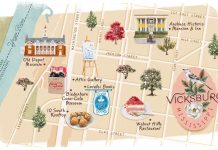
When my wife, Linda, and I were very young and very poor, we lived in a tin-roofed cabin in Mountain City, Georgia. Sometimes, to love well what we could love for free, we would drive around the lakes of Rabun County and all the green, wrinkled land in that far northeastern part of our state.
Decades later, with careers and family, we began to stay part of each summer at a friend’s beautiful home on Lake Rabun, and if we had changed, the water had not. Its serpentine shimmer still bore wooden boats and the dappled reflections of geese.
We inlanders are always coming back to our favored bodies of water. Some are close to Atlanta and obvious, but others nestle down like delightful surprises in the flow of geography and memory.
Almost a century ago, Georgia Power built a series of six small lakes on the Tallulah River. Like all such impoundments, the lakes came with human pain. Area residents, even one whole town, had to move. But a century later, the lakes have a gorgeous inevitability about them. On any summer’s day, the giggling of children can turn into the clarinetty squabbling of waterfowl across their placid waters.
Many of our best days and best stories take place around such lakes.
On the dock of the house where we used to stay, I read out loud Hemingway’s great story “Big Two-Hearted River” on that writer’s birthday centennial in 1999. I remember our daughter Megan as she grew from a limber, laughing child into an always-reading teenager by its shores. Once Linda’s parents visited us there and we waited an entire day, fearful but anxious, for a doctor to call and give Linda’s mother the results of a test for a serious illness. When he finally rang near six in the evening to tell her the test was negative, we celebrated with drinks in the twilight as, far out on the water, a kid being pulled on a float looked like a bug on a breath mint.
Lake Rabun is only 835 acres and not nearly so impressive as Lake Burton, largest in the chain. And yet its nestled privacy is part of an enduring charm. We loved the still water in a nacreous early morning, dark enough for owls but light enough to see a child’s dawn-rosy face. We drank coffee on the lovely roofed space above the boathouse as luminous midmornings reflected cumulus clouds slowly drifting across the lake’s surface. And after sunset, when the last few boats hummed quietly out on the dark water, we were in our seats for the deafening town hall argument of cicadas.
The tides on a small lake are not on the water but within those of us who visit them. We come to shed the world and cool off on hot days, when panting pines droop down to needle the ground. We come for quiet talk and great meals, to see an afternoon prestorm wind ruffle the water like a fond hand in a child’s hair.
My wife and I are no longer young, and we see Lake Rabun in a different way from our early married days more than forty years ago. But as Hemingway said about Paris, “We always returned to it no matter who we were or how it changed or with what difficulties, or ease, it could be reached.”
The same is true for Georgia’s lakes. We never grow too old for the joy we find there or for the wisdom and forgiveness of water.
A novelist, poet, essayist, and composer, Williams has been named Georgia Author of the Year four times by the Georgia Writers Association.
This article originally appeared in our June 2013 issue.













